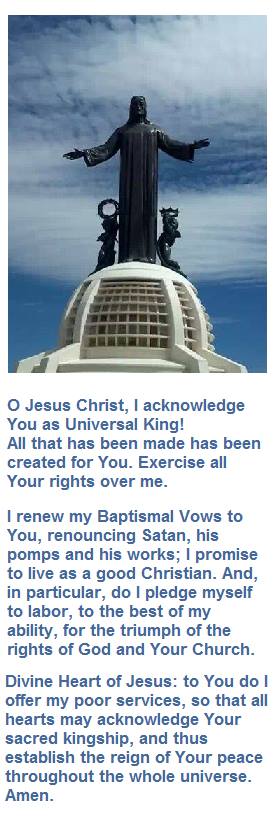Cardinals Brandmüller, Burke, Zen, Sandoval, and Sarah submitted five questions, called dubia, on August 21, asking for clarification on questions linked to doctrinal development, the blessing of same-sex unions, the authority of the Synod on Synodality, the ordination of women, and sacramental absolution.
These dubia were signed by Cardinals Walter Brandmüller (94), President of the Pontifical Committee for Historical Sciences; Raymond Burke (75), Prefect Emeritus of the Supreme Tribunal of the Apostolic Signatura; Joseph Zen Ze-Kiun (90), Bishop Emeritus of Hong Kong; Juan Sandoval Íñiguez (90), Archbishop Emeritus of Guadalajara; and Robert Sarah (78), Prefect Emeritus of the Dicastery for Divine Worship and the Discipline of the Sacraments.
The Facts
In a “Notification to Christ’s Faithful (can.212 §3) Regarding Dubia Submitted to Pope Francis,” the cardinals explain that they had written a first set of “questions” that they sent to the Supreme Pontiff on July 10, 2023. The response was not late in coming, as it was dated July 11, the very next day.
However, this letter did not follow the typical dubium format. This type of question is posed in order to receive a “yes” or “no” response. But the Pope gave a detailed response that did not satisfy the five writers, as they found it too vague on all points. So they wrote a second version, more precise, expressly asking for a “yes” or a “no” answer to each point: “Having studied his letter which did not follow the practice of responsa ad dubia [responses to questions], we reformulated the dubia to elicit a clear response based on the perennial doctrine and discipline of the Church. By our letter of August 21, 2023, we submitted the reformulated dubia […] to the Roman Pontiff. Up to the present, we have not received a response to the reformulated dubia.”
The Initial Dubia and Their Reformulation
First dubium
The first dubium treated of the development of doctrine and the affirmation of it by bishops, asking if Divine Revelation “should be reinterpreted according to the cultural changes of our time and according to the new anthropological vision that these changes promote.” The cardinals emphasized that these changes could push the Church to teach things contrary to what she has always taught.
The Pope’s response indicated that the Church “matures in the understanding of what she herself has affirmed in her Magisterium.” But this did not satisfy the cardinals, since, as they stated, this “concerns essential, not secondary, questions for our salvation, like the confession of faith, subjective conditions for access to the sacraments, and observance of the moral law.”
So they reformulated their dubium: “is it possible for the Church today to teach doctrines contrary to those she has previously taught in matters of faith and morals, whether by the Pope ex cathedra, or in the definitions of an Ecumenical Council, or in the ordinary universal magisterium of the Bishops dispersed throughout the world (cf. Lumen Gentium 25)?”
Second dubium
The second dubium dealt with the blessing of same-sex unions. The cardinals emphasized the teaching of the Church on the creation of human nature as man and woman and of the order to multiply, (Gen. 1:27-28). The dubium initially asked if the Church could depart from this teaching and accept “as a ‘possible good’ objectively sinful situations, such as same-sex union.”
The response of the Pope said that to liken marriage to the blessing of same-sex couples would lead to confusion and therefore must be avoided. But the cardinals were concerned about the fact “that the blessing of same-sex couples might create confusion in any case […] in that homosexual acts would be presented practically as a good.”
So the dubium was reformulated: “Is it possible that in some circumstances a pastor could bless unions between homosexual persons, thus suggesting that homosexual behavior as such would not be contrary to God’s law and the person’s journey toward God?”
In line with this doubt, the cardinals asked if the teaching of the Church remains valid—namely, that “every sexual act outside of marriage, and in particular homosexual acts, constitutes an objectively grave sin against God’s law, regardless of the circumstances in which it takes place and the intention with which it is carried out.”
Third dubium
Treating of synodality, the third dubium initially asked “whether synodality can be the supreme regulative criterion of the permanent government of the Church without distorting her constitutive order willed by her Founder,” given that “the Synod of Bishops does not represent the College of Bishops but is merely a consultative organ of the Pope.”
The response of Pope Francis insisted that “synodality, as a style and dynamism, is an essential dimension of the life of the Church,” which includes all the lay faithful, but the cardinals then expressed their concern about the fact that “synodality” is presented “as if, in communion with the Pope, it represents the Supreme Authority of the Church.”
The cardinals’ reformulated dubium asks the question in this way: “Will the Synod of Bishops to be held in Rome, and which includes only a chosen representation of pastors and faithful, exercise, in the doctrinal or pastoral matters on which it will be called to express itself, the Supreme Authority of the Church, which belongs exclusively to the Roman Pontiff and, una cum capite suo, to the College of Bishops (cf. can. 336 C.I.C.)?”
Fourth dubium
The fourth dubium concerned the possible ordination of women. It asked “whether the teaching of St. John Paul II’s Apostolic Letter Ordinatio Sacerdotalis, which teaches as a truth to be definitively held the impossibility of conferring priestly ordination on women, is still valid” and if this teaching “is no longer subject to change nor to the free discussion of pastors or theologians.”
In their reformulated version of the dubium, the cardinals noted that the Pope had affirmed that Ordinatio Sacerdotalis must be definitively maintained and “that it is necessary to understand the priesthood, not in terms of power, but in terms of service.” But they voiced objections to his response, according to which “the question can still be further explored.”
“We are concerned that some may interpret this statement to mean that the matter has not yet been decided in a definitive manner,” they stated. Their reformulated dubium said: “Could the Church in the future have the faculty to confer priestly ordination on women, thus contradicting that the exclusive reservation of this sacrament to baptized males belongs to the very substance of the Sacrament of Orders, which the Church cannot change?”
Fifth dubium
The fifth dubium focused on sacramental absolution. The initial dubium referred to the insistence of Pope Francis on the “duty to absolve everyone and always, so that repentance would not be a necessary condition for sacramental absolution.” It asked if contrition is always necessary for the validity of confession, “so that the priest must postpone absolution when it is clear that this condition is not fulfilled.”
In the reformulated dubium, the cardinals explained that the Pope “confirmed the teaching of the Council of Trent according to which the validity of sacramental absolution requires the sinner’s repentance, which includes the resolve not to sin again.” They added, however: “Some might interpret Your answer as meaning that merely approaching confession is a sufficient condition for receiving absolution, inasmuch as it could implicitly include confession of sins and repentance.”
So they reformulated their dubium as follows: “Can a penitent who, while admitting a sin, refuses to make, in any way, the intention not to commit it again, validly receive sacramental absolution?”
The Vatican Publishes the Pope’s Response
Likely annoyed by the publication of the “Notification to Christ’s Faithful” by the five cardinals, the Dicastery for the Doctrine of the Faith—certainly with the consent or at the request of the Pope—published the Pope’s July 11 letter of response to the five cardinals, which had not been intended to be made public. They had considered it a personal response of Pope Francis and that it was not for them to publish it. These recent incidents, occurring just before the opening of the Synod, are not likely seen with a kind eye at the Vatican. It risks stifling conversation in the hallways and in the Synod chamber.
Sources: InfoCatolica/vatican.va/cath.ch–Fsspx.Actualités

































